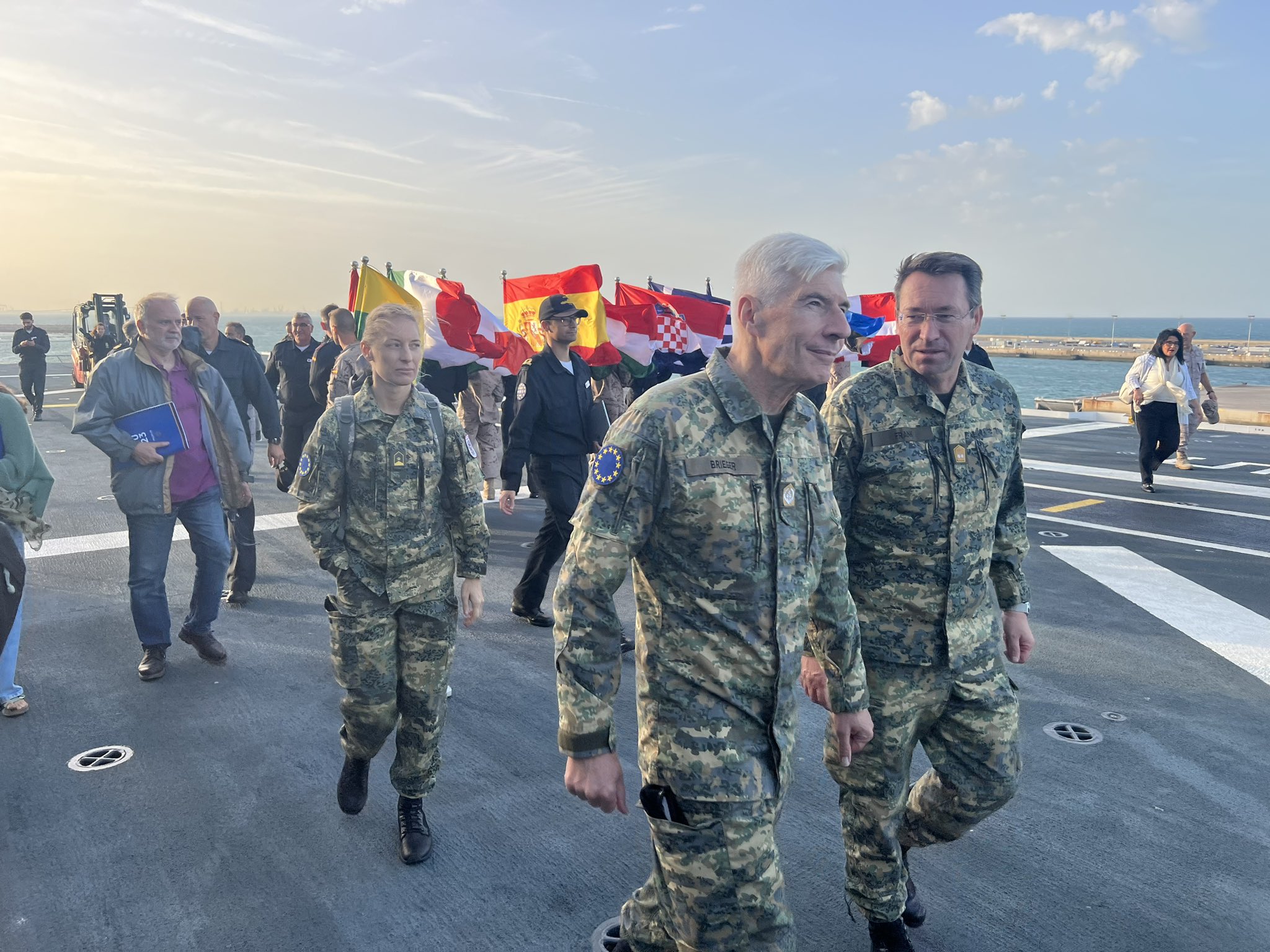Troops from several EU member states are conducting a joint training exercise in Spain this week as the bloc seeks to bolster its military prowess and prove itself as a major player without reliance on NATO.
Austria, France, Hungary, Ireland, Italy, Malta, Portugal, Romania and Spain are all participating in the war games dubbed LIVEX that are using 31 military units from the respective nations, all of which are expected to work together to complete several objectives.
One such exercise involves conducting an amphibious assault on the Spanish harbor at the port of Cádiz, identified as land belonging to the fictitious EU ally of Seglia, which has become overrun by a violent extremist group.
It is understood that Spanish troops are playing the role of the insurgent group seeking to defend the harbor from the liberating European forces.
The week-long LIVEX air-to-air landing exercises involving 19 European Union countries began in Spain. These are the first non-NATO-led military exercises in the history of the EU.
The head of the EU Military Committee, Robert Briger, said that the LIVEX scenario would play out… pic.twitter.com/z4PdeLyn2n
— The Global 202 (@theglobal202) October 16, 2023The European Union’s top diplomat, Josep Borrell, told media the exercises are aimed at integrating the militaries of EU member states as the bloc moves toward the creation of its Rapid Deployment Capacity (EU RDC), a framework that Brussels says can “swiftly deploy up to 5,000 troops to respond to imminent threats and react to crisis situations.”
“Unfortunately, these are the scenarios we have to deal with, and we have to be prepared for doing so. They will be part of our everyday reality as we see today, dramatically, in our most direct neighborhood,” Borrell explained.
“As the EU, we need to be ready to act as required to protect our citizens and to contribute to global stability. And for that, we need to exercise together. This will help us to be better prepared to play a role as a defense actor and global security provider,” he added.
The EU RDC is expected to be fully operational by 2025, and the bloc will conduct several more joint military exercises in the interim, with Germany expected to host the war games next year.
The European External Action Service, which leads the European Union’s foreign and security policy, praised the event as evidence of the bloc “stepping up its military capacity to respond to a security crisis.”
Chairman of the EU Military Committee General Robert Brieger called the exercise “indeed historic,” insisting it was necessary for the EU to offer a “pragmatic and responsible answer” for building its own tools for crisis management.
This is indeed historical!
The pragmatic & responsible answer by #EU in building own tools for crisis management, fitted to tackle today's challenges to security in complementarity with @NATO is happening!
1st-ever?? #LIVEX today in Rota ?? with 3,000 committed militaries. pic.twitter.com/BQlcGHy4Xf
— Chairman of the EU Military Committee (@ChairmanEUMC) October 17, 2023He added that the bloc’s plans for greater military integration are designed to complement NATO rather than replace it.






